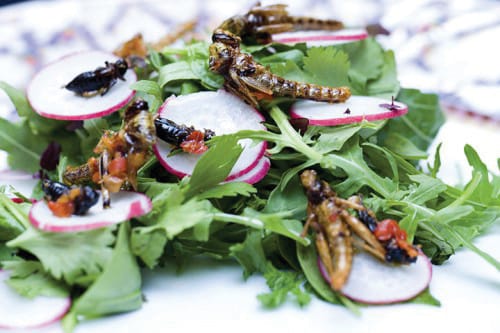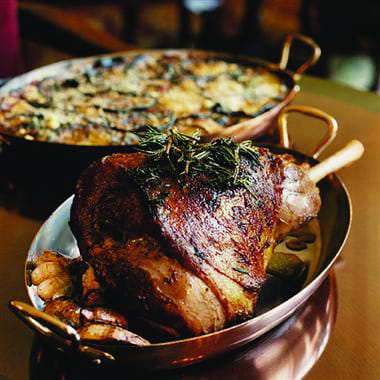Has the time come to accept insect cuisine?
Meat and fish? It may well be all about insects

Grasshopper steak, anyone? If that doesn’t tickle your fancy, how about an ant lollipop? Though these ideas may sound revolting, entomophagy, the consumption of insects, may well become more popular in the Western world as fish stocks dwindle and rising population reduces the space available for traditional meat farming.
Insect cuisine is already popular in many parts of the world, including South America, Oceania, most of Africa and parts of Asia. But why should we adopt their cuisine? What’s wrong with traditional meat and fish-based dishes, already stable, plentiful sources of protein?
The problem is that neither meat nor fish will be able to support a growing planet. By most estimates, world population will increase to nine billion by 2050, putting an already stressed Earth under more pressure to provide – at the current time livestock occupies nearly two-thirds of all farmland. Unless intensive farming is extensively practiced (an abhorrent idea), the amount of land available for rearing livestock will have to be scaled back.
And as for fish? The situation isn’t much better, with rampant overfishing having caused numerous fish populations to crash. Even if strict catch quotas are enacted and actually abided by it will take years for stocks to recover to their former levels, during which time the world will scream out for meat. Worse still, if we want fish stocks to stay stable there’s no way we can fish as brutally efficiently as we have done in the past. The oceans will not be our saviours.
Neither meat nor fish will be able to support a growing planet
Cue insects. They are a far better meat source, both environmentally and nutritionally, than any animal regularly eaten in the Western world. Simple facts speak volumes – compared to cattle, insects can produce nine times more protein for the same amount of feed, are quite happy eating the stuff we don’t want to, are rich in vitamins and minerals, and can be cultivated at a much higher density when compared to conventional livestock. Unfortunately the matter isn’t nearly so simple; if someone shoved a plate of fried pill bugs under your nose and told you that they’re “high in protein,” would you eat it? Western taboo is the major barrier preventing insects from featuring prominently in restaurants and supermarkets.
Cue Ento, a project undertaken by four Masters students at Imperial College and the Royal College of Art. The project lays out a roadmap of sorts with the aim to soften Western taboo in staggered steps, beginning with festivals and markets. In such places, peer pressure could be used to Ento’s advantage to get people to try unusual dishes they wouldn’t have touched alone. From there comes novel start-up restaurants and take-away services, offering dishes presented as cubes of insect meat, intended to stop people from reeling away on the basis of sight alone.
Ready meals then pop onto the scene, followed eventually by raw insect meat, projected to be in stores by the year 2020. By then the Ento team predict that the taboo would have been softened to the point snacking on fried woodlice at the cinema would be seen as normal and not freakish.
So are we likely to see insect delis or fast food beetle burgers anytime soon? Probably not as soon as Ento predicts. Western bug-eating taboo is likely to prevail a little longer, though it will inevitably crumble under combined pressure from Ento-like schemes and rising food demand. Who knows? Maybe in five years time future Felix readers will be reading about how best to grill tarantula meat or stew scorpions.
Such huge shifts in Western gastronomy will by no means come easily. The Ento group will unfortunately not be taking their ideas into the market place themselves, but the framework for enacting cultural change certainly gives one food for thought.
If you’re interested in finding out more about Ento visit: www.cargocollective.com/ento.









